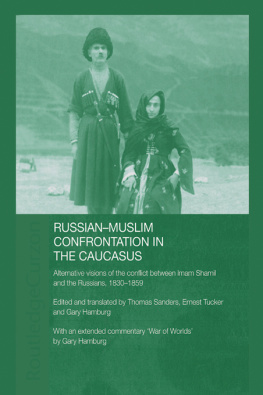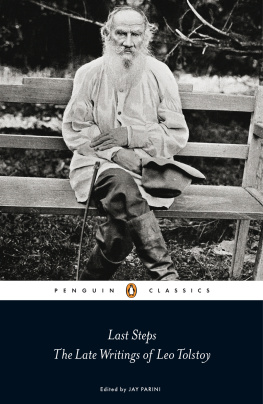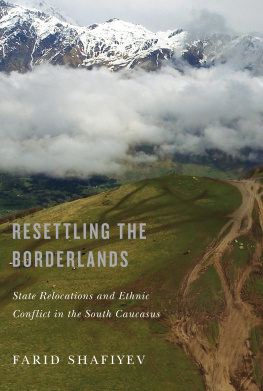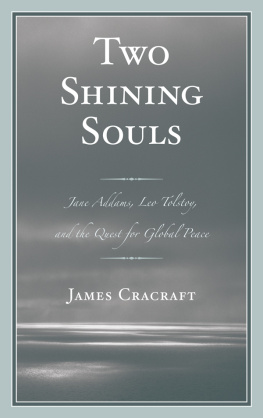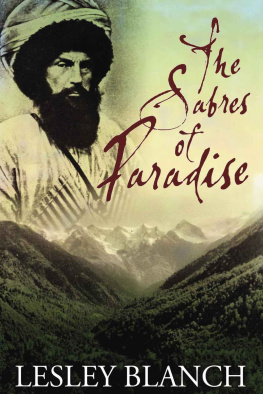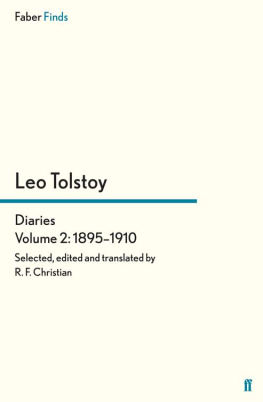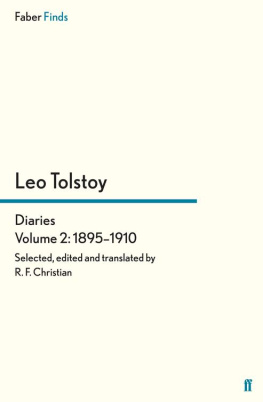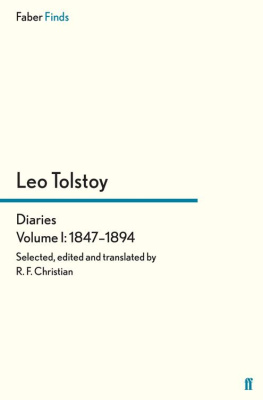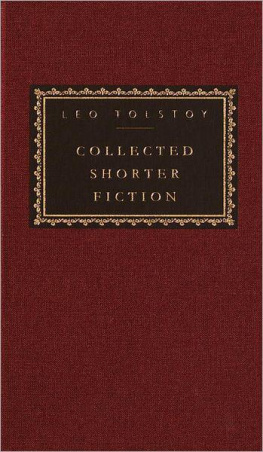
RUSSIANMUSLIM CONFRONTATION IN THE CAUCASUS
This book presents two important texts, The Shining of Daghestani Swords by al-Qarakhi and a new translation for a contemporary readership of Lev Tolstois Hadji Murat, illuminating the mountain war between the Muslim peoples of the Caucasus and the imperial Russian army from 1830 to 1859. The editors offer a complete commentary on the various intellectual and religious contexts that shaped the two texts and explain the historical significance of the RussianMuslim confrontation. It is shown that the mountain war was a clash of two cultures, two religious outlooks and two different worlds. The book provides an important background to the ongoing contest between Russia and indigenous people for control of the Caucasus. The two translations are accompanied by short introductions and by a longer commentary intended for readers who desire a broader introduction to the tragic conflict in the Caucasus whose effects still reverberate in the twenty-first century.
Thomas Sanders is Associate Professor of Russian History at the U.S. Naval Academy. Ernest Tucker is Associate Professor of Middle East History at the U.S. Naval Academy Gary Hamburg is Behr Professor of European History, ClaremontMcKenna College, U.S., specializing in the cultural and intellectual history of imperial Russia.
SOAS/ROUTLEDGECURZON STUDIES ON THE MIDDLE EAST
Series Editors
Benjamin C.Fortna, SOAS, University of London
Ulrike Freitag, Freie Universitt Berlin, Germany
This series features the latest disciplinary approaches to Middle Eastern Studies. It covers the Social Sciences and the Humanities in both the pre-modern and modern periods of the region. While primarily interested in publishing single-authored studies, the series is also open to edited volumes on innovative topics, as well as textbooks and reference works.
ISLAMIC NATIONHOOD AND COLONIAL INDONESIA
The Umma below the winds
Michael Francis Laffan
RUSSIAN-MUSLIM CONFRONTATION IN THE CAUCASUS
Alternative visions of the conflict between Imam Shamil and the Russians, 18301859
Edited and Translated by Thomas Sanders, Ernest Tucker and Gary Hamburg
RUSSIANMUSLIM CONFRONTATION IN THE CAUCASUS
Alternative visions of the conflict between Imam Shamil and the Russians, 18301859
Edited and translated by Thomas Sanders, Ernest Tucker and Gary Hamburg
With an extended commentary War of Worlds by Gary Hamburg

First published 2004 by RoutledgeCurzon 11 New Fetter Lane, London EC4P 4EE
Simultaneously published in the USA and Canada by RoutledgeCurzon 29 West 35th Street, New York, NY 10001
RoutledgeCurzon is an imprint of the Taylor & Francis Group
This edition published in the Taylor & Francis e-Library, 2005.
To purchase your own copy of this or any of Taylor & Francis
or Routledges collection of thousands of eBooks please go to
http://www.ebookstore.tandf.co.uk/.
2004 Thomas Sanders, Ernest Tucker and Gary Hamburg
All rights reserved. No part of this book may be reprinted or reproduced or utilised in any form or by any electronic, mechanical, or other means, now known or hereafter invented, including photocopying and recording, or in any information storage or retrieval system, without permission in writing from the publishers.
British Library Cataloguing in Publication Data A catalogue record for this book is available from the British Library
Library of Congress Cataloging in Publication Data A catalog record for this book has been requested
ISBN 0-203-34389-1 Master e-book ISBN
ISBN 0-203-38751-1 (Adobe e-Reader Format)
ISBN 0-415-32590-0 (Print Edition)
CONTENTS
PREFACE
But surely he is great and holy because he is a man, a madly and tormentingly beautiful man; a man of the whole of mankind.
Maxim Gorky on Lev Tolstoi, Reminiscences of Tolstoi, Chekhov and Andreev
There was one nation which would not give in, would not acquire the mental habits of submissionand not just individual rebels among them, but the whole nation to a man. These were the Chechens
Alexander Solzhenitsyn on the Chechens, The Gulag Archipelago
This work began as a post-Soviet project and ended as more of a post-modernist one. In the early 1990s, in dismay over the general level of misinformation on the history of RussianChechen relations, we began to search for ways to alert the educated public to the complexities of that history. An obvious point of reference for newcomers to the Caucasus region is Lev Tolstois posthumously published novella, Hadji Murat, whose title character was a major figure in the mountain war of the mid-nineteenth century. Unfortunately, English readers commonly encounter this little gem in the incomplete, unsatisfactory rendition by Tolstois English disciple, Aylmer Maude. The Maude version is rife with archaic Anglicisms and punctuated by dialogue whose meaning is sometimes as remote as the peaks of the Caucasus. We decided, therefore, to begin our project by providing readers with a more accessible translation of Hadji Murat.
We also wanted our readers to have access to at least one indigenous account of the Caucasuss unhappy history. To capture the mountaineers voices, we chose to translate Muhammad Tahir al-Qarakhis The Shining of Daghestani Swords in Certain Campaigns of Shamil. A scribe who enjoyed the confidence of Imam Shamil, the military and religious leader of the anti-Russian forces during the mountain war of 18301859, al-Qarakhi was exceptionally well placed to know the principal events of the war and to convey the mountaineers singular perspective on those events. Moreover, since The Shining of Daghestani Swords derives from the Middle Eastern tradition of chronicling and hagiography, our translation gives readers the chance to examine the formal divergence between mountain techniques of representation and the more familiar European genre of historical fiction.
Thus, our book presents two perspectives on the Caucasus: Tolstois enlightened European viewpoint and al-Qarakhis indigenous interpretation. The commentary at the end of this work analyzes the war of worlds between imperial Russia and the Islamic mountaineers. Because of the currency of the subject matter, the eminence of Tolstoi, and the privileged proximity of al-Qarakhi to Imam Shamil and to the imams view of the conflict, we think this book is an excellent case study of cultural collision. As such we hope it will be of interest to specialists in Russian and Middle Eastern studies, to teachers of world and European history courses, and to the educated public in the English-speaking world and beyond.
Thomas Sanders, Ernest Tucker and Gary Hamburg
ACKNOWLEDGMENTS
This book is very much a joint effort. Tucker translated al-Qarakhi directly from the Arabic version of the text collated by the Soviet Arabist A.M.Barabanov. Sanders translated Barabanovs Russian variant of al-Qarakhis text into English too, and those two English translations were utilized to prepare the translation presented here, one that seeks to balance both fidelity and clarity. With the same goal in mind, Hamburg and Sanders collaborated on the translation of Tolstoi from the Russian.
Tucker and Sanders wrote draft essays dealing with the mountain and Russian sides, respectively. Hamburg incorporated that material into his commentary, significantly extending and elaborating upon these preliminary essays. Students at Notre Dame and midshipmen at the Naval Academy have read and reacted to the translations at various points in the process, and their responses have helped refine the translation. As colleagues at the Naval Academy Tucker and Sanders had the advantage of proximity in consulting on issues relating to the texts. Hamburg, meanwhile, solicited an expert reaction to the portion of the commentary on al-Qarakhi from his friend and colleague, Paul M.Cobb. The Tolstoi section was read critically by Nancy L.Ickler. We wish to thank Ivan Jaksic, Andrzej Walicki, and Elise Kimerling Wirtschafter for reading the entire commentary and furnishing their constructive criticisms, and Jon Parshall for creating the maps.
Next page
